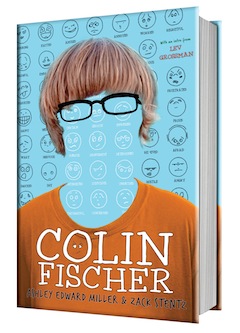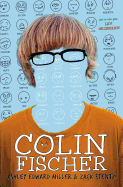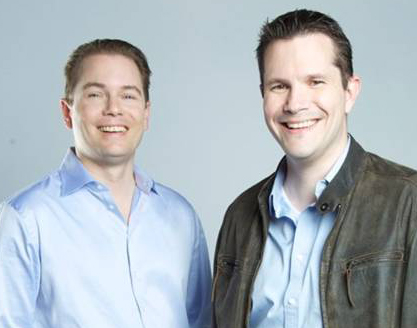Colin Fischer
by Ashley Edward Miller, Zack Stentz
Colin Fischer, the 14-year-old hero at the center of this extraordinary debut novel from screenwriter team Ashley Edward Miller and Zack Stentz, is like no one else we've met in children's literature.
As a teen with Asperger's syndrome, Colin may find social interactions challenging, but he is "high functioning," brilliant and focused. On his first day at West Valley High, the wrong student is accused of bringing a gun to school. And even though that suspect, Wayne Connelly, has made life miserable for Colin for as long as he can remember, Colin knows that Wayne eats too neatly to have smeared cake icing on the gun, and he is determined to prove his innocence and find the true culprit. Why? Because, as Colin observes in a completely different context on an entirely different matter, "Who the truth helped and how much was irrelevant." He believes in getting to the bottom of things.
Miller and Stentz achieve a remarkable feat with the narrative voice of the novel. Although Colin is not the narrator, the omniscient voice "gets" Colin and unspools the series of events in much the way Colin might--just the facts, without judgment. A generous smattering of entries from Colin's notebook, which he uses to record his days and his interactions with others, offers readers insight into how Colin's mind works. A black-and-white photo of Basil Rathbone hangs over Colin's bed (as a footnote explains, to Colin, Rathbone was "the definitive inhabitant of the role of World's Greatest Detective"). Readers will observe that Colin gravitates to another mind that's working differently. When he begins to piece together the puzzle of who might be the true owner of the gun, Colin creates an FBI-style web of suspects, "categorized... by their social, academic, geographic, and socioeconomic cliques" and coded by colored yarn. Colin's pursuit of the truth takes him to Wayne's home and literally outside of his comfort zone, as the two travel bus routes far beyond the Northwestern corner of the San Fernando Valley, where the Fischers make their home. It quickly becomes clear to readers that as Colin works on solving the mystery of the gun's owner, he is also figuring out Colin--and learning that his own life is, in many ways, a mystery to be solved.
Although Colin begins his first day of high school with Wayne shoving his head into a toilet bowl, and other peers clearly bully him--such as Rudy, who sets his cell phone to rattle Colin until he barks like a dog ("Colin wondered idly if there were some connection between Rudy's popularity and his penchant for cruelty")--the authors also populate the novel with allies at the school. Melissa Greer, who has always been kind to Colin, continues to befriend him, even though the summer has been kind to her--her braces are gone, and she's developed a figure ("Your breasts got bigger," Colin tells her. "She was used to Colin, but never quite prepared for him"), and others call her "hot." And the gym teacher, Mr. Turrentine, emerges as one of the most quietly redemptive characters, treating Colin like every other student, but also taking the time to teach him how to shoot a basket and pronouncing him "a damned basketball prodigy."
Colin's parents--a rocket scientist father and a mother who serves as project manager at NASA--give him every means of support, from providing a trampoline in the backyard ("bouncing helped him relax, focus, and think") to giving him ample warning when they're about to touch him ("coming in for a landing," they say; "He understood their need for contact," the narrator explains. "He had read about it in a book"). His 11-year-old brother, Danny, however, understandably finds it difficult to see everyone make so many allowances for his older brother. In a denouement as dramatic as Colin finding himself with Wayne in a gun dealer's house in their attempt to track down the owner of the gun at school, Danny does the one thing he knows will undo his brother.
The authors create a magnetic character--though he's a creature of routine, Colin still manages to surprise us. Because of his unique perspective, Colin says things that society prefers not to mention, and offers truths that get to the core of human existence. The extensive footnotes let readers inside Colin's favorite films and obsessions, and offer insight into his strategies for navigating his world and--in a direct parallel to solving the novel's central mystery--for navigating the unknown. But it's also a strategy for living: "For Colin,... to learn a thing was to know a thing; to know a thing was to understand a thing; to understand a thing was to face it without fear." Readers will take this hero to heart; Colin's next adventure cannot come soon enough. --Jennifer M. Brown






